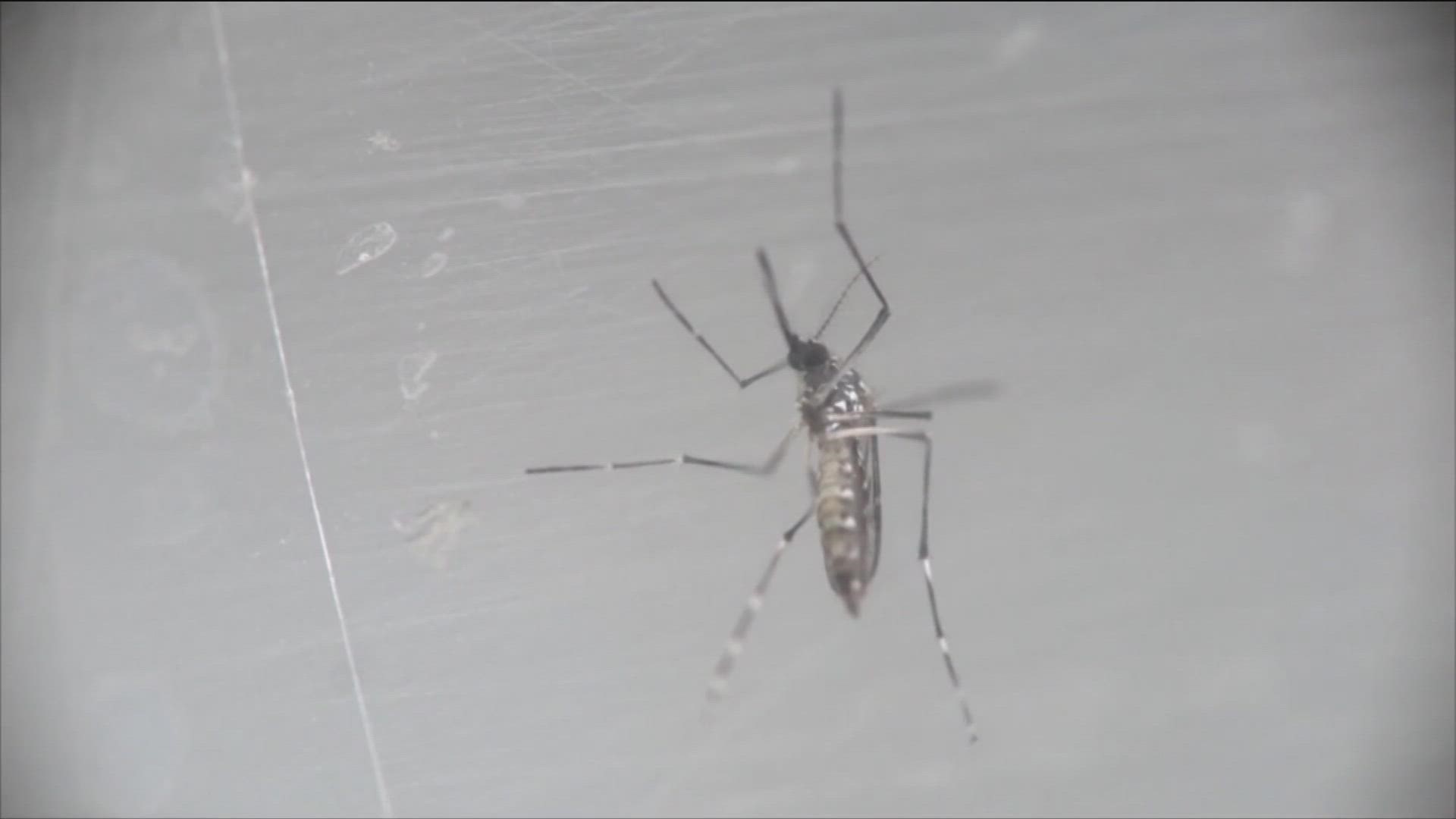TRAVIS COUNTY, Texas — Austin Public Health (APH) reported that it was investigating four possible cases of West Nile Virus in Travis County. The health department said the cases were not confirmed at this time, as of Oct 10.
Additionally, the APH Environmental Vector Control Program identified a second mosquito pool that was positive for the virus. It is located in the 78759 ZIP code. That's after the first positive pool was identified in late July in the 78721 ZIP code.
On Oct. 10, the Williamson County and Cities Health District also reported two mosquito trap samples collected in Cedar Park have tested positive for West Nile Virus. The positive samples were collected from the same trap site near the H-E-B Center at Cedar Park on Oct. 6. The last date a positive sample was collected from this location was Nov. 2020. Expanded trapping in the area will begin on Oct. 11 and signage will be posted.
These are the first reported West Nile virus positive samples of the 2022 season in Williamson County. There have been no reported human cases of West Nile virus in Williamson County this year.
On Oct. 13, Georgetown officials reported that more positive samples were located from traps at Geneva Park, 1021 Quail Valley Drive and in Berry Creek at Diamond Dove Trail and Airport Road. These samples were collected on Oct. 11.
“The Environmental Vector Control Program provides education, information and ideas on techniques that can be used by residents to mitigate or eliminate mosquitoes in the area,” said Marcel Elizondo, interim assistant director for environmental health services. “By removing standing water and using prevention tools we keep ourselves, our families and communities safe.”
On Dec. 13, APH reported the first human case of West Nile virus for the year. Officials said the individual who tested positive had not travelled, so it can be assumed the case was contracted locally.
In 2021, there were eight positive mosquito pools in Travis County and 1,515 positive pools across the State of Texas, and 77 confirmed West Nile Virus cases. In 2021, there were 12 mosquito trap samples that returned positive samples for West Nile virus in Williamson County. There were no human cases of West Nile virus reported in Williamson County in 2021.
APH said that about 20% of people nationwide infected with West Nile Virus develop symptoms such as:
- Headache
- Body aches
- Joint pains
- Vomiting
- Diarrhea
- Rash
Of those infected, few develop a serious illness affecting the central nervous system, APH said. People over the age of 60 are at greater risk for developing serious illness along with those who have conditions like cancer, diabetes, hypertension and kidney disease. Organ donors are also at risk for serious illness.
West Nile Virus is the most common mosquito-borne disease in the U.S. and is typically spread by the bite of an infected mosquito, APD said. The Centers for Disease Control and Prevention said it is not spread through coughing, sneezing, or touching other people or live animals.
APH said mosquitoes are present in Central Texas year-round but the population is the largest and most active from May through November. It's during this time that the vector control program monitors the mosquito population.
APH reminds residents to avoid getting bit with the "Four Ds":
- Drain standing water: Mosquitoes breed in standing water and need as little as one teaspoon. Emptying water that accumulates in toys, tires, trash cans, buckets, clogged rain gutters, and plant pots will deny mosquitoes a place to lay their eggs and reproduce.
- Dusk to Dawn: Although different species of mosquitoes are active at different times of day, the Culex mosquito that spreads West Nile Virus is most active between dusk and dawn.
- Dress: Wear pants and long sleeves when you are outside. Wear light-colored, loose-fitting clothing; mosquito repellent clothing is also available.
- DEET: Apply insect repellant: Use an EPA-registered repellent such as those containing DEET, picaridin, IR3535, oil of lemon eucalyptus, para-menthane-diol or 2-undecanone. Apply on both exposed skin and clothing.
For more information on West Nile Virus, visit APH's West Nile Virus page.
PEOPLE ARE ALSO READING:

